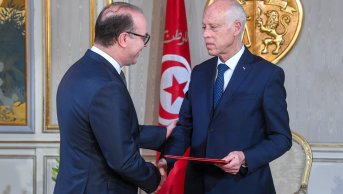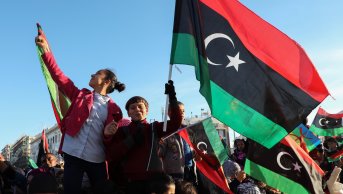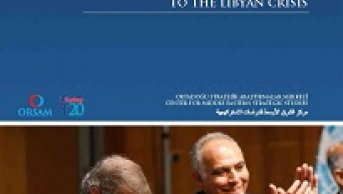The $1.5 billion Question: A Coup or Not?

Removal of President Mohamed Morsy from power and imposition of a road map by the Egyptian military trigger a wide discussion of that if it is coup d'état or something else. From academicians to political figures from all over the world have their own answer to this question, however that is the $1.5 billion question for the White House and the new Egyptian government.
According to the Foreign Assistance Act, the United States is required to suspend foreign aid to “any country whose duly elected head of government is deposed by military coup or decree.” So if the U.S. determines that what happened in Egypt is a coup, it has to stop its aid for the country. Hence U.S. position on the recent developments would yield “consequences” for the U.S. enormous amounts of aid which direct mostly military but also as economic assistance. Till now, The White House and most leaders in Congress have so far avoided using the word of “coup”, which would cost Egypt more than $1.5 billion. But that does not mean that the Egyptian military and new interim government guarantees the military and humanitarian aid by U.S.
For the moment, President Obama carefully avoided using the word of “coup,” whereas the official statements released till now stress the “importance of a quick and responsible return of full authority to a democratically elected civilian government as soon as possible.” It seems that U.S. aid cutoff will remain as an important leverage to influence the situation in Egypt without actually involving to the ongoing process and more actually deepening crises. But also it is important to see the vital preconditions that are reminded periodically by U.S. administration. President Obama’s statement on July 3 made clear the most important precondition:
“I now call on the Egyptian military to move quickly and responsibly to return full authority back to a democratically elected civilian government as soon as possible through an inclusive and transparent process, and to avoid any arbitrary arrests of President Morsy and his supporters…. The voices of all those who have protested peacefully must be heard – including those who welcomed today’s developments, and those who have supported President Morsy.”
Hence on one hand the total exclusion of Muslim Brotherhood from the process and continuation of the pro-Morsy and anti-coup protests which will rarify transferring the power to an elected government are mined terrain for the Egyptian military and new interim government. U.S. position would escalate its response depending on where the Egyptian military as well as where the pro-Morsy and anti-coup protests went from here.
So the Egyptian military has three major challenges that have to confront in a very short time. The first two are interconnected: calming down the streets of Egypt and re-engage the Muslim Brotherhood to the negotiations in order to normalize the Egyptian political life as possible as under these circumstances. It is nearly impossible to achieve one without the other which is a circle closely tied each other. As long as the Egyptian army continue to hold high officials of Muslim Brotherhood and Freedom and Justice Party (FJP), especially Morsy; the crowds who protests the army and support Muslim Brotherhood in many cities of Egypt seems very determinant in staying the streets. However the main reason behind the arresting over 300 hundred high officials of Muslim Brotherhood and FJP is to diminish their organizational capacity, to intimidate their social base and to castrate their position. Considering the ongoing protests in Egypt, these aims seem to fail achieving success in the country. Vice versa the mobility of the supporters of Muslim Brotherhood and FJP sustain a vital leverage for the re-engagement of FJP to negotiations. Whether the Egyptian army will decide to suppress brutality the ongoing protests, or reconsider the option of giving some concrete concessions from the roadmap. It seems pretty clear that the external cost of suppression will be a price that the Egyptian army would not like to pay.
Under these circumstances the Egyptian army has to lead the country to the election as soon as possible without leaving FJP out of political game. The options are limited. The elections, which held without the participation of FJP, will be legitimate for neither whole Egyptian nor international actors. The Egyptian military's actions over the next few weeks will largely determine how the U.S. administration responses the ouster of Morsy and imposition of interim-technocrat government in Egypt.











